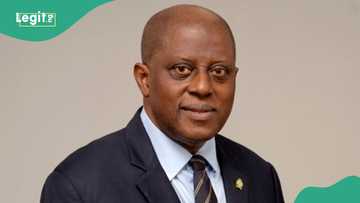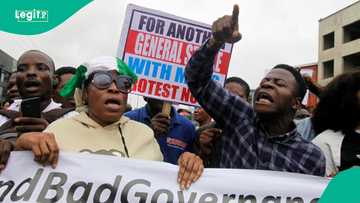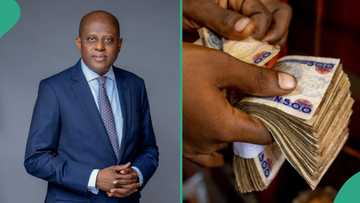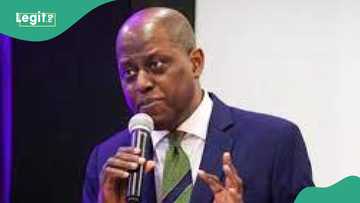Petrol, Cooking Gas, Electricity Tariff: List of 7 Items Whose Prices Have Gone Up Under Tinubu
- Since President Tinubu assumed office in May 2023, Nigeria has experienced a notable surge in the prices of essential goods and services, significantly affecting the daily lives of its citizens
- The government insists that these price increases are a necessary part of economic reforms aimed at ensuring long-term sustainability, despite the widespread debate and concern they have sparked
- Legit.ng examined some of the major items and services that have seen significant price hikes under President Tinubu
Nigeria has witnessed a sharp rise in the prices of essential goods and services under President Tinubu-led administration, a shift that has profoundly impacted the daily lives of millions.
The government, steadfast in its stance, has consistently attributed the hikes to indispensable economic reforms aimed at long-term sustainability.

Source: Getty Images
Yet, this rationale has ignited a fervent debate across the nation. While officials maintain that these measures are crucial for economic stability, the undeniable reality is a steep climb in the cost of living, leaving many Nigerians grappling with the financial strain.
Legit.ng looked at some of the major items and services that have experienced significant price hikes below:
1. Fuel price surge
It began with the removal of the fuel subsidy in May 2023. The price of petrol—Nigeria’s lifeblood—soared from a manageable ₦185 per litre to a staggering ₦500 per litre, with whispers of prices reaching ₦700 in some corners of the country.
This single move unleashed a ripple effect, sending transportation costs skyrocketing and burdening households as the cost of food and everyday goods inflated beyond reach.
The government justified it as a necessary step for economic reform, but for millions of Nigerians, it marked the beginning of a financial squeeze.
2. Electricity tariff
Imagine flipping a switch and feeling the weight of a 240% price hike on electricity bill.
That’s the reality many Nigerians faced when, in April 2024, the Nigerian Electricity Regulatory Commission approved a drastic increase in tariffs.
For Band A customers, the cost shot up from ₦68/kWh to an eye-watering ₦225/kWh. The government claimed it was saving ₦1.5 trillion by removing subsidies, but for the average household, this move was a shocking jolt to already strained budgets.
3. Passport fee hike
As of September 1, 2024, the cost of acquiring a Nigerian passport will make a significant leap, with the government citing the need to maintain the document’s quality and integrity.
The fee for a 32-page booklet with five-year validity rose from ₦35,000 to ₦50,000, while the 64-page, ten-year passport now demands ₦100,000, up from ₦70,000.
4. Cooking gas price
By March 2024, refilling a 5kg cylinder of Liquefied Petroleum Gas (LPG) had climbed to ₦6,591.62, marking a 42.97% year-on-year increase from March 2023.
With the cost of living rising across the board, this surge in cooking gas prices has added another layer of difficulty for families striving to make ends meet.
5. Transportation costs
The roads Nigerians travel daily have become more expensive to navigate. Public transportation fares in major cities like Lagos and Abuja have doubled, even tripled in some cases.
The once affordable journey from Berger to Mowe, for instance, now costs ₦500—up from ₦300 in March 2023.
6. Food price inflation
In markets across the nation, the cost of staple foods has climbed, making basic nutrition a daily struggle for millions.
Rice, beans, maize—these essentials have seen prices inflate further due to higher transportation costs, a direct consequence of the fuel subsidy removal.
What was once an everyday purchase has become a luxury, forcing families to stretch their naira thinner than ever.
7. Tuition fee hike
Also, education, often seen as the ladder to a better life, has become more difficult to afford.
Federal universities like the University of Lagos announced sharp tuition fee increases—medical students now face fees of ₦190,250, up from just ₦19,000, while other courses have seen similar jumps to ₦140,250. The dramatic hike sparked protests and ignited concerns over the accessibility of higher education in a country where opportunities are already scarce.
Deliberate action expected from Governors aside Tinubu
In a short interview with Chidi Chinedu, a political affairs analyst, was particular about the role that state actors need to play to stave inflation.
He told Legit.ng:
“Nigeria is battling serious economic challenges linked to high inflation, currency devaluation and the attendant cost of living crisis. Every state is grappling with how to provide succour for their residents. Governors in all states must work hard to go beyond palliatives to providing meaningful and sustainable economic opportunities for his people. Infrastructure deficit is also a major issue. State actors must put out a clear infrastructure development plan and be devoted in implementing it. They must focus on both human and physical development, prioritising key areas such as health, education, and skill development.”

Read also
Group reacts as CBN adjusts changes to interest rate for customers of Access, UBA, GTB, others
Tinubu calls for calm amid hardship
Meanwhile, Legit.ng earlier reported that on Thursday, July 25, President Bola Ahmed Tinubu admitted to participating in various protests in Nigeria without violence.
The president spoke while responding to the recently held nationwide protest on August 1 that has generated concerns in the polity.
Proofreading by James, Ojo Adakole, journalist and copy editor at Legit.ng.
PAY ATTENTION: Сheck out news that is picked exactly for YOU ➡️ find the “Recommended for you” block on the home page and enjoy!
Source: Legit.ng






